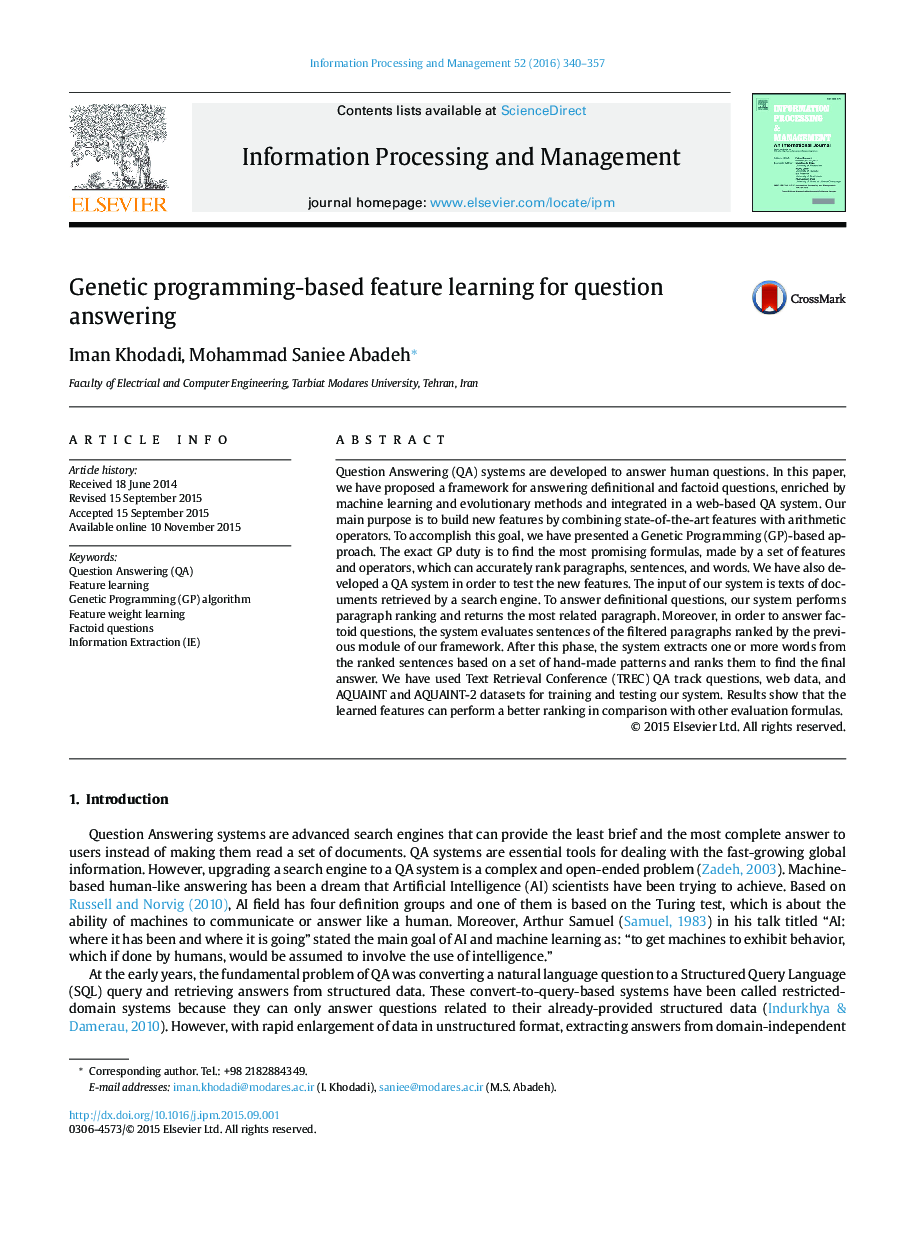| کد مقاله | کد نشریه | سال انتشار | مقاله انگلیسی | نسخه تمام متن |
|---|---|---|---|---|
| 515809 | 867098 | 2016 | 18 صفحه PDF | دانلود رایگان |
• A new framework for answering definitional and factoid questions.
• Producing new features by combining effective features with arithmetic operators.
• Genetic Programming (GP) algorithm has been employed for feature learning.
• Three discriminant-based methods have been used for learning features weights.
Question Answering (QA) systems are developed to answer human questions. In this paper, we have proposed a framework for answering definitional and factoid questions, enriched by machine learning and evolutionary methods and integrated in a web-based QA system. Our main purpose is to build new features by combining state-of-the-art features with arithmetic operators. To accomplish this goal, we have presented a Genetic Programming (GP)-based approach. The exact GP duty is to find the most promising formulas, made by a set of features and operators, which can accurately rank paragraphs, sentences, and words. We have also developed a QA system in order to test the new features. The input of our system is texts of documents retrieved by a search engine. To answer definitional questions, our system performs paragraph ranking and returns the most related paragraph. Moreover, in order to answer factoid questions, the system evaluates sentences of the filtered paragraphs ranked by the previous module of our framework. After this phase, the system extracts one or more words from the ranked sentences based on a set of hand-made patterns and ranks them to find the final answer. We have used Text Retrieval Conference (TREC) QA track questions, web data, and AQUAINT and AQUAINT-2 datasets for training and testing our system. Results show that the learned features can perform a better ranking in comparison with other evaluation formulas.
Journal: Information Processing & Management - Volume 52, Issue 2, March 2016, Pages 340–357
